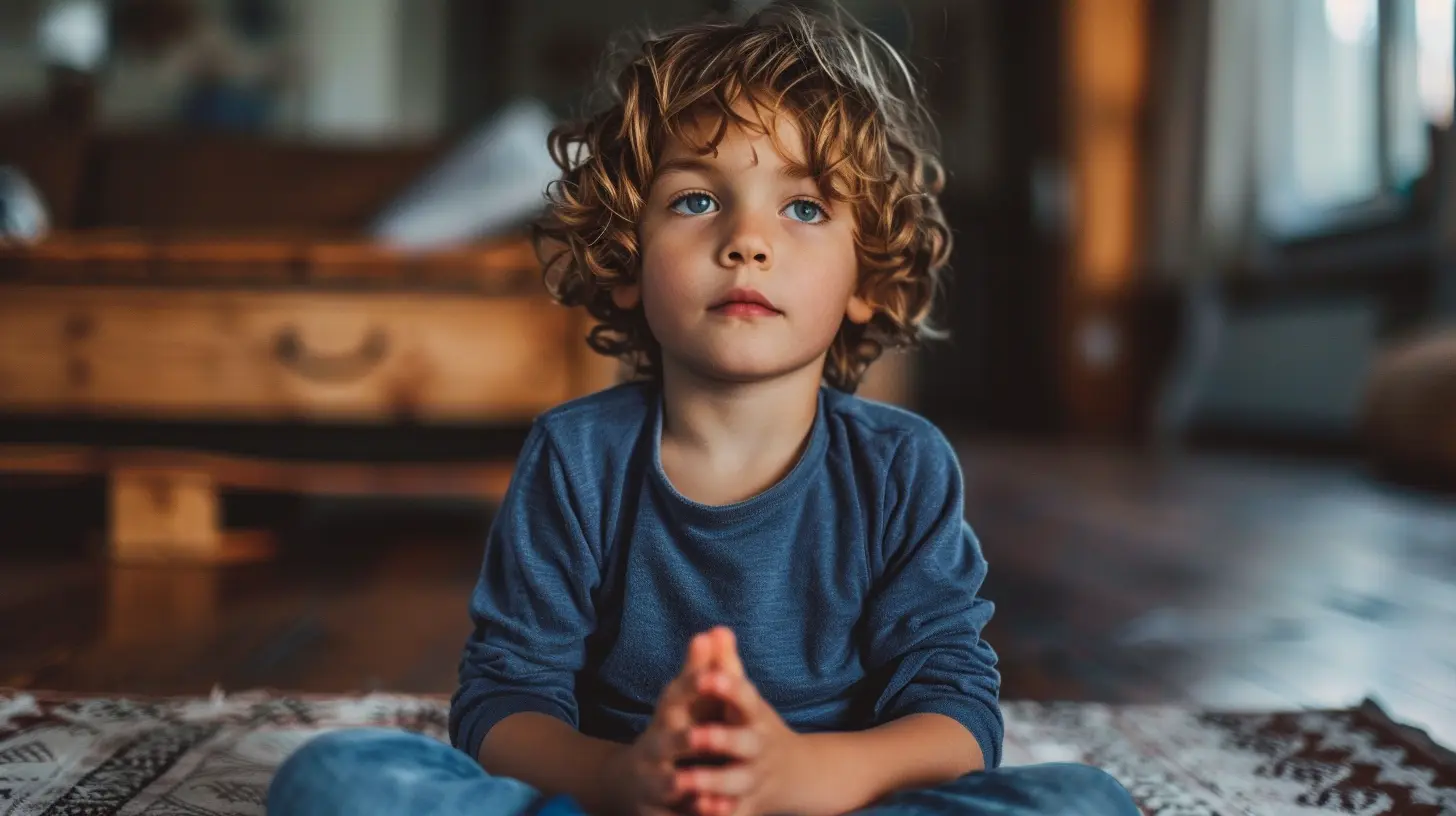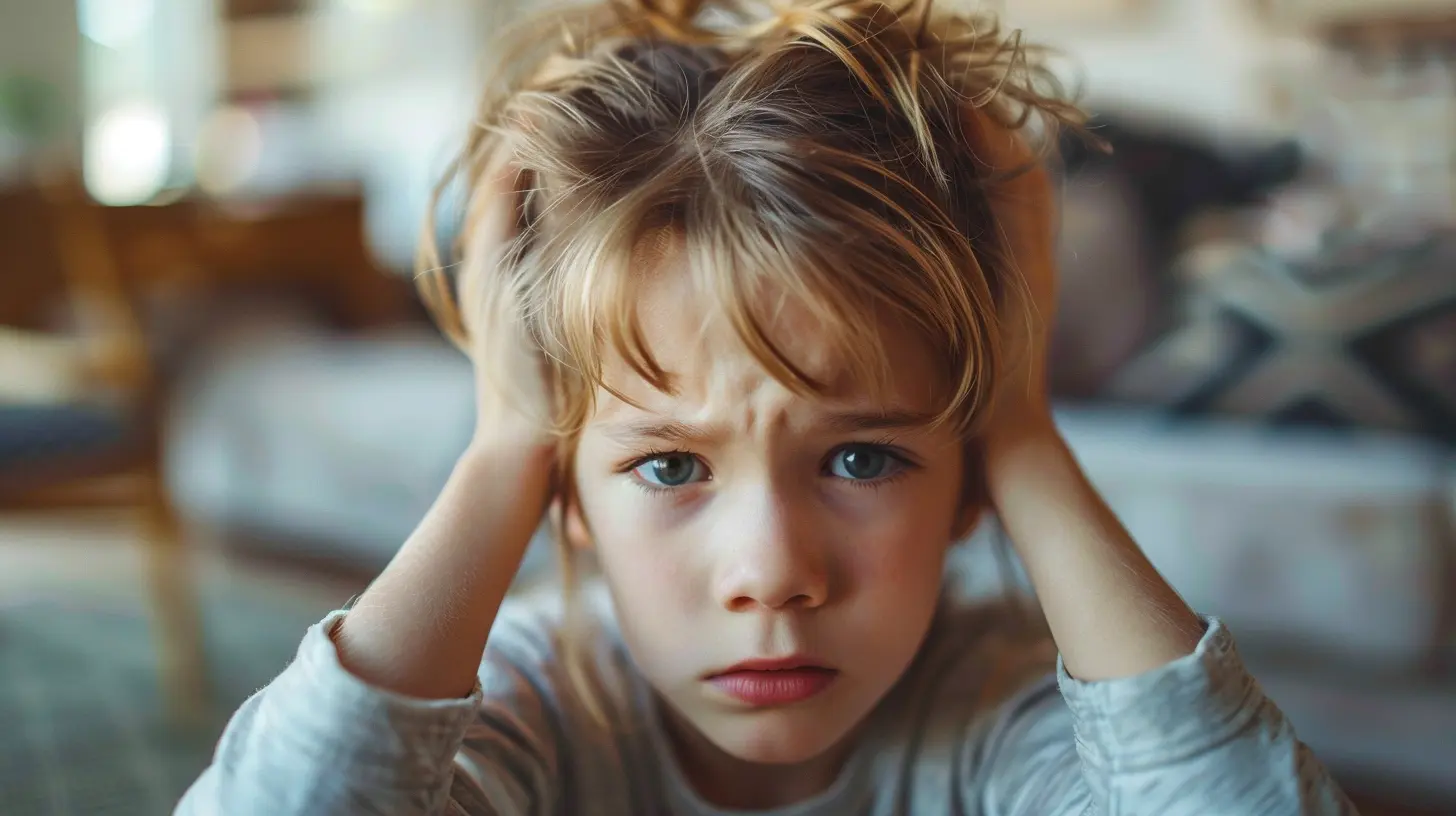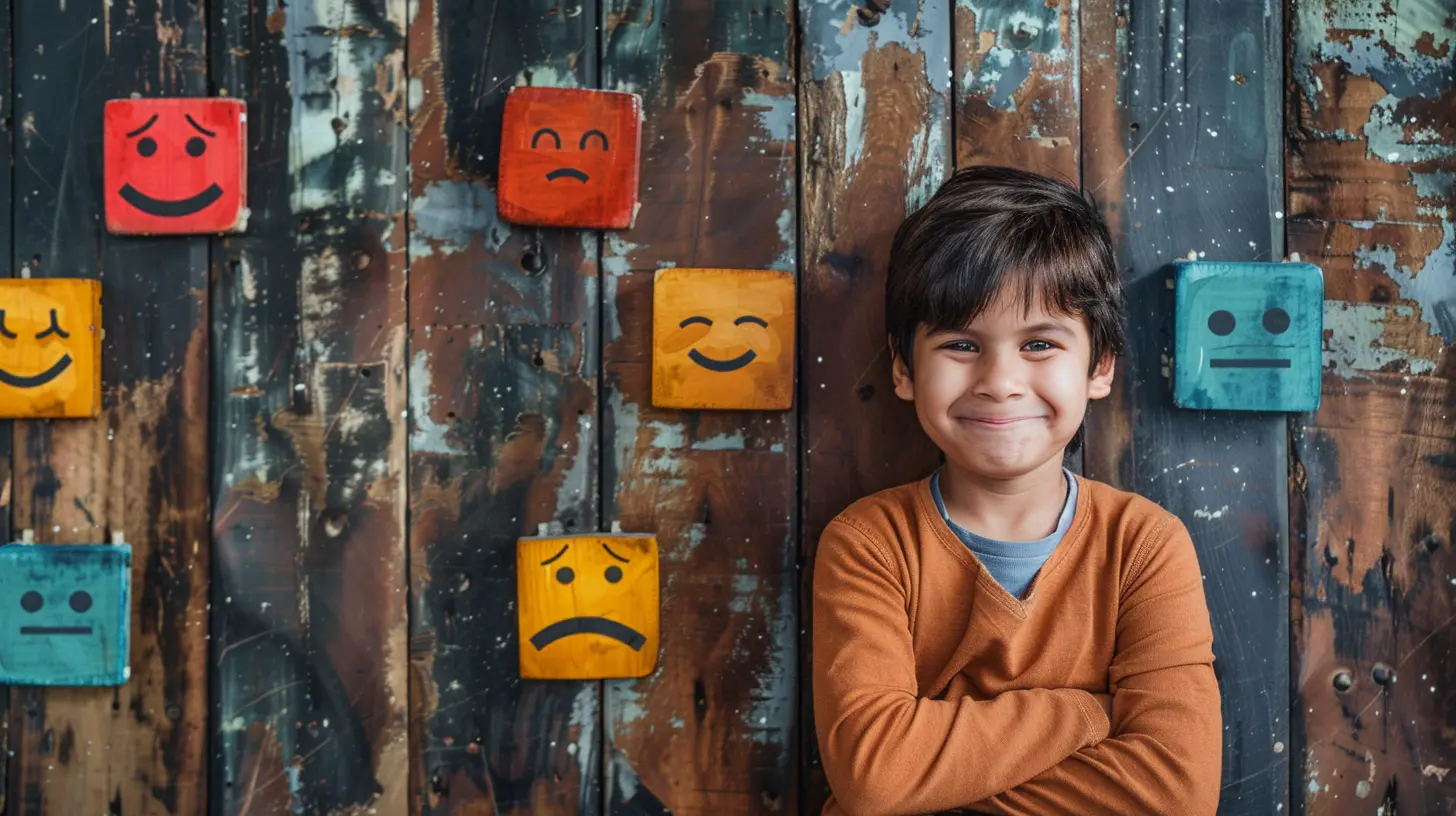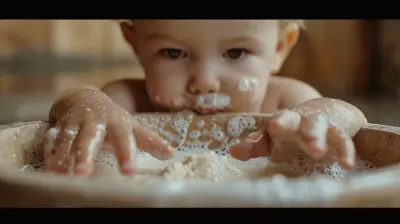9 April 2025
Parenting comes with an incredible amount of joy, but let’s be honest—there’s also a fair share of stress. From juggling work responsibilities to managing household chaos, stress is unavoidable. But here’s the real kicker: how you handle stress directly impacts your kids.
Ever stopped to think about what your little ones see when you’re overwhelmed? Whether you realize it or not, you’re teaching them how to cope with stress—by example. If your method involves snapping at minor inconveniences, shutting down emotionally, or reaching for that extra glass of wine, they’re absorbing every bit of it.
Let’s talk about what happens when parents fail to model healthy stress management and what we can do to get back on track.

The Silent Lessons Our Kids Pick Up
Kids are like little sponges. They may not understand the complexities of your stress, but they sure do feel the effects. When they see you overwhelmed, yelling, or withdrawing, they interpret this as "normal" behavior. Over time, they adopt these coping mechanisms as their own.Imagine your child sees you constantly pacing, complaining about work, and drowning stress in unhealthy habits. Fast forward a few years—when they face challenges at school, how do you think they’ll react?
The truth is, the way you handle stress now plants the seeds for how your child will manage theirs in the future. And if we’re not careful, we can accidentally pass down poor stress-management habits that will follow them into adulthood.

Signs That Your Stress Management Might Be Off
Let’s be real—none of us are perfect. But sometimes, we don’t even recognize when we’re setting a bad example. Here are a few signs that you may not be handling stress in the healthiest way:- Frequent outbursts – Do you find yourself snapping at small things? These reactions teach kids that frustration equals aggression.
- Emotional withdrawal – If your go-to move is shutting down when things get tough, your child may learn that avoiding emotions is the best way to cope.
- Unhealthy coping mechanisms – Overindulging in junk food, alcohol, or excessive screen time sets a precedent for how to handle tough moments.
- Lack of self-care – If your child sees you constantly running on empty, they may believe that self-care isn’t a priority.
Recognizing these patterns is the first step toward change. The next step? Actively working to show your child a healthier way to handle stress.

How Poor Stress Management Affects Kids
Failing to manage stress effectively doesn’t just impact you—it can take a serious toll on your children.1. They Develop Anxiety and Stress-Related Issues
Kids pick up on tension, even if you think you’re hiding it well. If they’re constantly exposed to high-stress environments, they might develop anxiety, sleep issues, or even physical symptoms like headaches and stomachaches.2. They Struggle with Emotional Regulation
If they don’t see healthy ways to handle stress, they’re less likely to develop those skills themselves. That could mean meltdowns, aggression, or internalized stress that manifests later in life.3. They Adopt Unhealthy Coping Mechanisms
What they see is what they do. If you’re reaching for junk food, alcohol, or mindless scrolling as your go-to stress relief, don’t be surprised when they turn to similar habits in the future.4. They Struggle in Relationships
Poor stress management can lead to poor communication and emotional withdrawal. If kids don’t see healthy conflict resolution, they may struggle to form and maintain strong relationships later in life.
Breaking the Cycle: Healthy Stress Management for Parents
So, how do we change the narrative? How do we model healthier stress management and give our kids the tools they need to thrive?1. Acknowledge Stress Openly and Calmly
One of the best things you can do is normalize talking about stress. If you’re struggling with a tough day, let your child in on it—but in a way they can understand. Instead of saying, “I’m so stressed! Everything is awful!”, try something like, “Today was really busy, and I feel a little overwhelmed. I'm going to take a few deep breaths to calm down.”This shows kids that stress is normal and manageable.
2. Practice and Teach Mindful Breathing
Deep breathing isn’t just for yoga classes—it’s a simple but powerful tool for stress relief. The next time you’re feeling frazzled, take a few deep breaths out loud and invite your child to join in. It’s a game-changer!3. Prioritize Self-Care Without Guilt
Self-care isn’t selfish—it’s essential. Make it a point to engage in activities that recharge you, whether it’s exercise, reading, or simply taking a quiet moment for yourself. When kids see you taking care of yourself, they learn that it’s okay to prioritize their own well-being too.4. Model Healthy Emotional Expression
If you bottle up your stress or explode in frustration, your child may adopt those same habits. Instead, express emotions in a constructive way. Saying something like, “I’m feeling really frustrated right now, so I’m going to take a walk to clear my mind,” gives kids a healthy blueprint to follow.5. Encourage Healthy Coping Mechanisms
Help your kids develop their own stress-relief toolkit by introducing them to healthy coping strategies. Activities like drawing, journaling, listening to music, or even engaging in family exercise can make a huge difference.6. Apologize When You Mess Up
No one gets it right 100% of the time. If you lose your cool or model an unhealthy stress response, don’t shy away from addressing it. Saying something like, “I yelled earlier, and that wasn’t the best way to handle my frustration. I’m sorry, and I’m going to work on that,” teaches kids that mistakes are okay and that growth is possible.7. Foster Open Communication
Let your kids know they can talk about their stress and emotions without fear of judgment. Regular check-ins—like a quick chat before bed—can help create a safe space for sharing feelings.The Takeaway
Parenting is tough, and stress is inevitable. But how you handle it determines how your child learns to handle their own stress in the future. Instead of unintentionally passing down unhealthy habits, let’s make an effort to model resilience, self-care, and emotional awareness.The good news? It’s never too late to rewrite the script. Every small step you take toward healthier stress management is a step in the right direction for both you and your child.
So, the next time stress starts creeping in, ask yourself—*what lesson am I teaching my child right now?




Peregrine McAdams
Children learn by example; prioritize your stress management skills.
April 16, 2025 at 4:09 PM